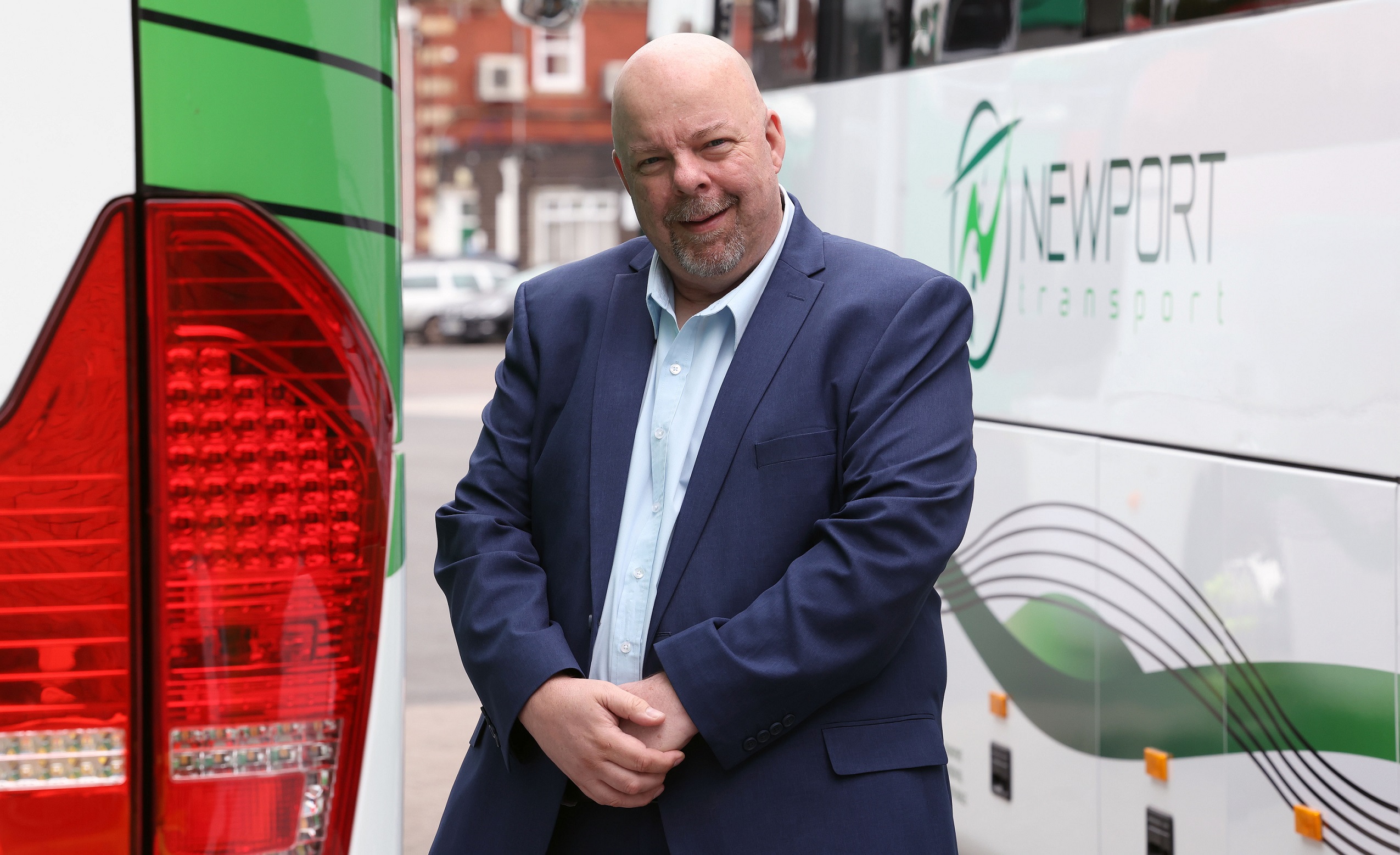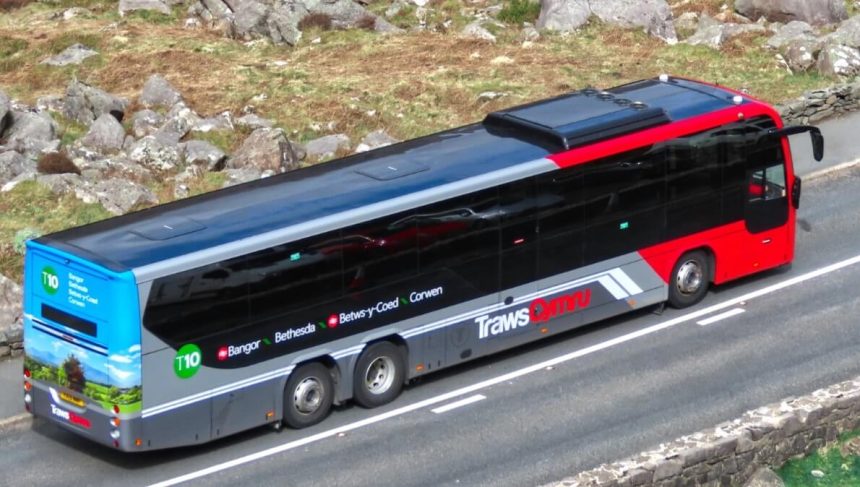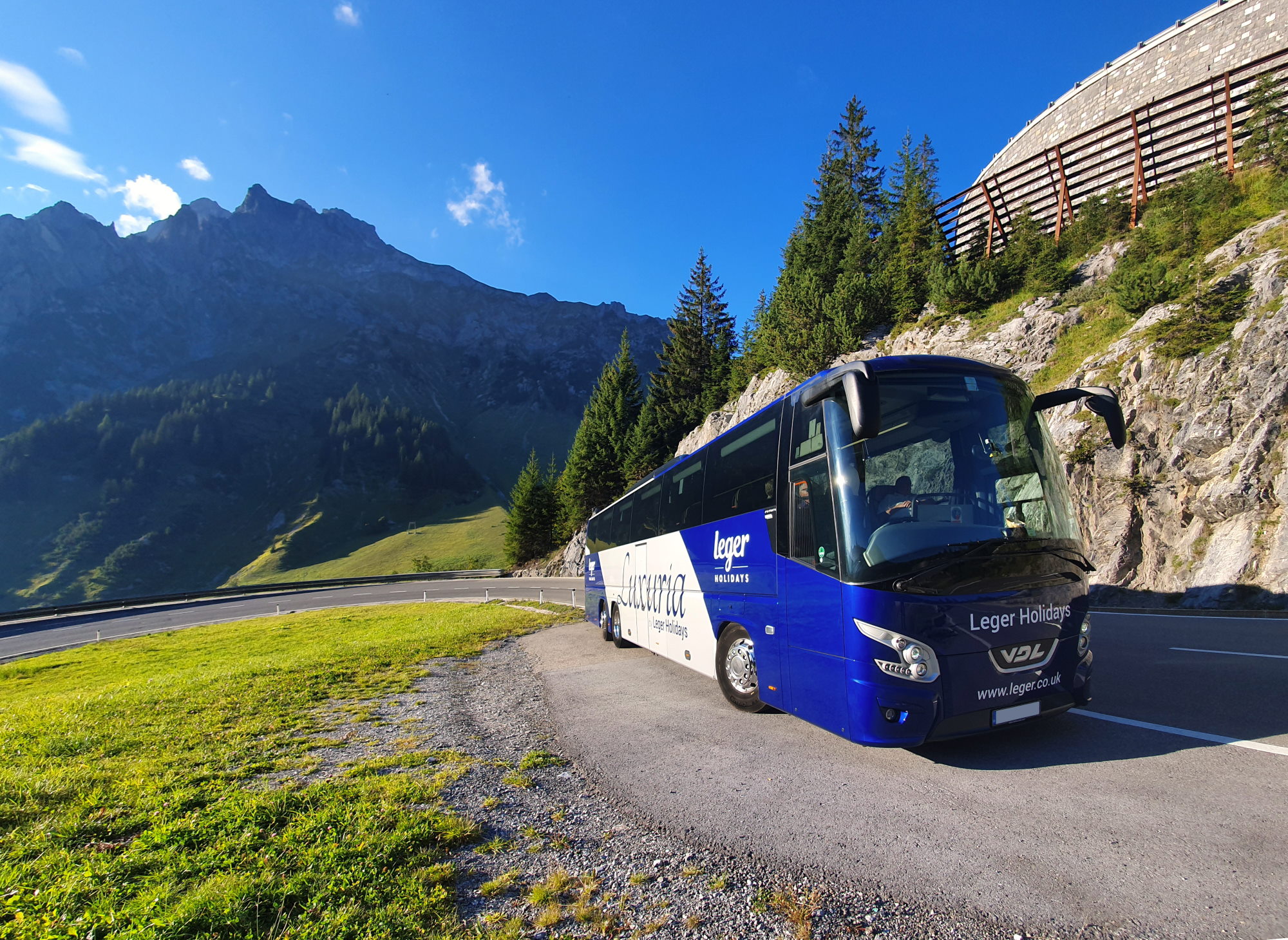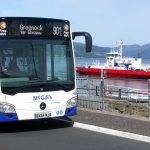The notion of a proposed publicly funded express coach service linking North and South Wales has been questioned by the chair of the Coach and Bus Association Cymru (CaBAC).
Scott Pearson was reacting to the publication last month of a feasibility study into the “TrawsCymru Express” between Bangor and Carmarthen.
According to the report commissioned by Transport for Wales, the proposed coach service could be introduced before the next Senedd election in May 2026.
The 130-mile journey could be covered in four hours 45 minutes — one and half hours quicker than both the TrawsCymru frequent-stop bus service and the quickest train connection.
According to the proposal, seven towns would be served on route, with eight services per day each way.
In order to align the TrawsCymru Express with plans for bus franchising in Wales — due to be rolled out from 2026-28 — the authors of the report recommend TfW would purchase vehicles for the service and lease them to the operators which won the contract.
The report estimates that, if diesel coaches were taken up, for the first typical year of 2027 – after the initial £4.6 million outlay of 2026 – a revenue of £0.9 million would be returned from a subsidy of £2 million.
Would the funding be better spent supporting local bus in these local communities that rely so much on their local dedicated bus services? – Scott Pearson
Mr Pearson, who is former Managing Director of Newport Transport, says: “CaBAC welcomes any improvement to bus services for the travelling public — especially one that serves the many rural communities in Wales.
“However, one must also check the demand for such a lengthy end-to-end service, with the risk of an unbalanced price per passenger subsidy compared to current local bus services.
“The current TrawsCymru network is proving to be very expensive to maintain, so adding to it at a time when Welsh Government are looking to franchise all local bus across Wales, one may question whether this the best use of public money.”
Although diesel coaches would be used initially for a trial phase, the report proposes that battery-electric coaches could be deployed as early as the end of 2027.
Mr Pearson adds: “The option to electrify this type of service is fraught with heavy additional costs, given the length of the route, which again questions who exactly would benefit from this service.
“Would the funding be better spent supporting local bus in these local communities that rely so much on their local dedicated bus services?

“While any improvement to bus services is laudable, surely this should be driven by demand not ideology.”
Commenting on the proposal, Aaron Hill, Confederation of Passenger Transport (CPT) Cymru Director, noted the economic and social benefit of coach travel.
“Coaches play a crucial role in connecting people where other modes of transport simply don’t reach, providing lifeline services to rural and underserved communities, unlocking access to opportunities, and fuelling local economies,” he says.
“A study by KPMG for CPT last year found that just one coach arriving in a town each day can deliver £1 million of economic value annually to the local economy.”



























